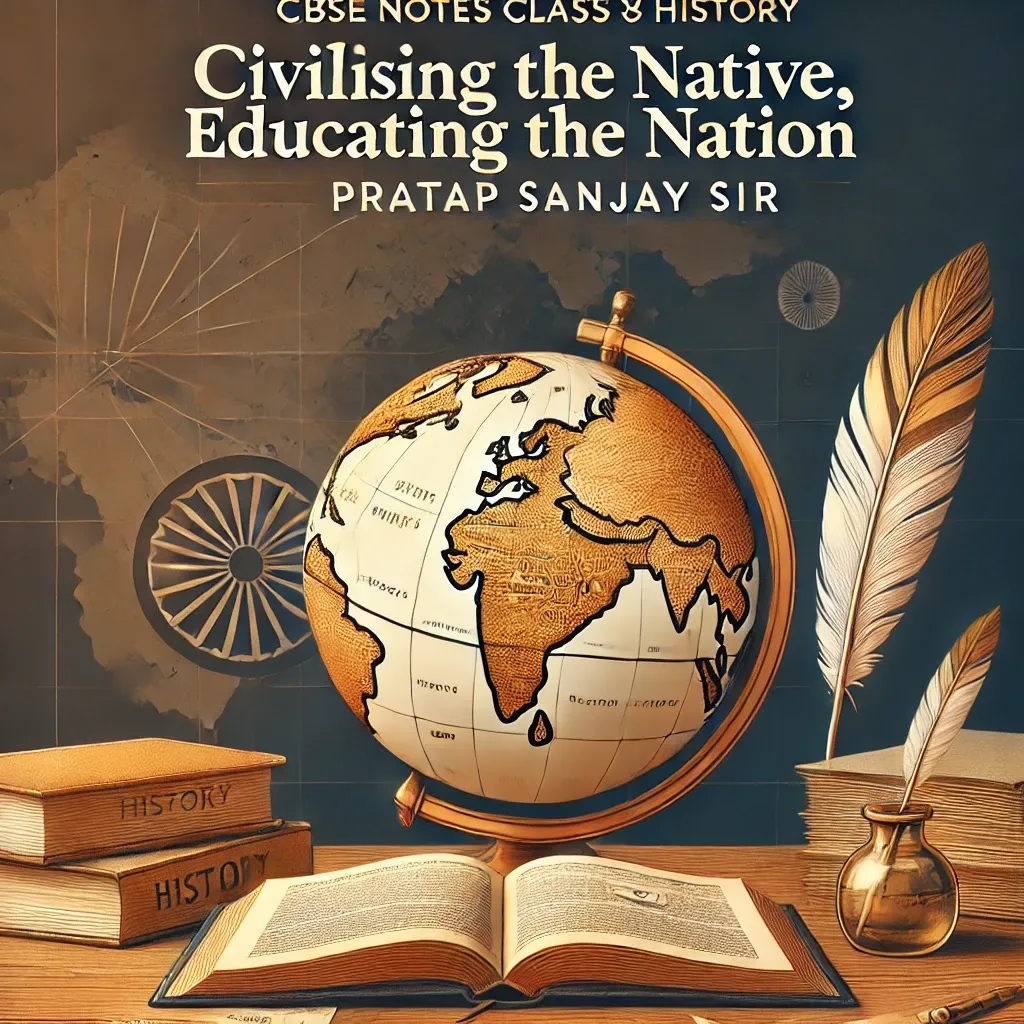CBSE Notes Class 8 History: Civilising the Native, Educating the Nation
How the British Saw Education
Orientalist Approach:
➥ British scholars like William Jones, Henry Thomas Colebrooke, and Nathaniel Halhed admired Indian culture and traditions.
➥ Established the Asiatic Society of Bengal and promoted the study of Sanskrit, Persian, and Arabic.
➥ Institutions like the Calcutta Madrasa (1781) and Benaras Hindu College (1791) were established to preserve and promote Oriental learning.
Criticism of Orientalism:
➥ British officials like James Mill and Thomas Babington Macaulay opposed Oriental education.
➥ Macaulay’s Minute on Education (1835) promoted English education, calling Oriental knowledge "unscientific."
➥ The English Education Act of 1835 introduced English as the medium of instruction.
Education for Commerce: Wood's Despatch (1854)
➥ Known as the Magna Carta of English Education in India.
➥ Aimed to spread European knowledge for practical benefits:
➥ Promoted trade and resource development.
➥ Emphasized moral character improvement.
Measures implemented:
➥ Education departments established.
➥ Universities in Calcutta, Madras, and Bombay (1857).
➥ Standardized school education systems.
What Happened to Local Schools?
William Adam’s Report (1830s):
➥ Over 1 lakh pathshalas existed in Bengal and Bihar, serving local needs.
➥ Flexible teaching methods and no strict rules.
New Rules and Routines:
➥ Post-1854, vernacular schools were standardized.
➥ Introduction of government-appointed inspectors and fixed timetables.
➥ Resulted in decreased accessibility for poor children during harvest seasons.
The Agenda for National Education
Mahatma Gandhi’s Views:
➥ Criticized Western education for creating inferiority complexes among Indians.
➥ Advocated for education that developed dignity, self-respect, and rootedness in Indian culture.
➥ Rabindranath Tagore’s Shantiniketan (1901):
➥ Focused on creative learning in a natural environment.
➥ Blended modern Western education with Indian traditions, emphasizing arts, science, and spirituality.
Subscribe to My Channel



No comments:
Post a Comment